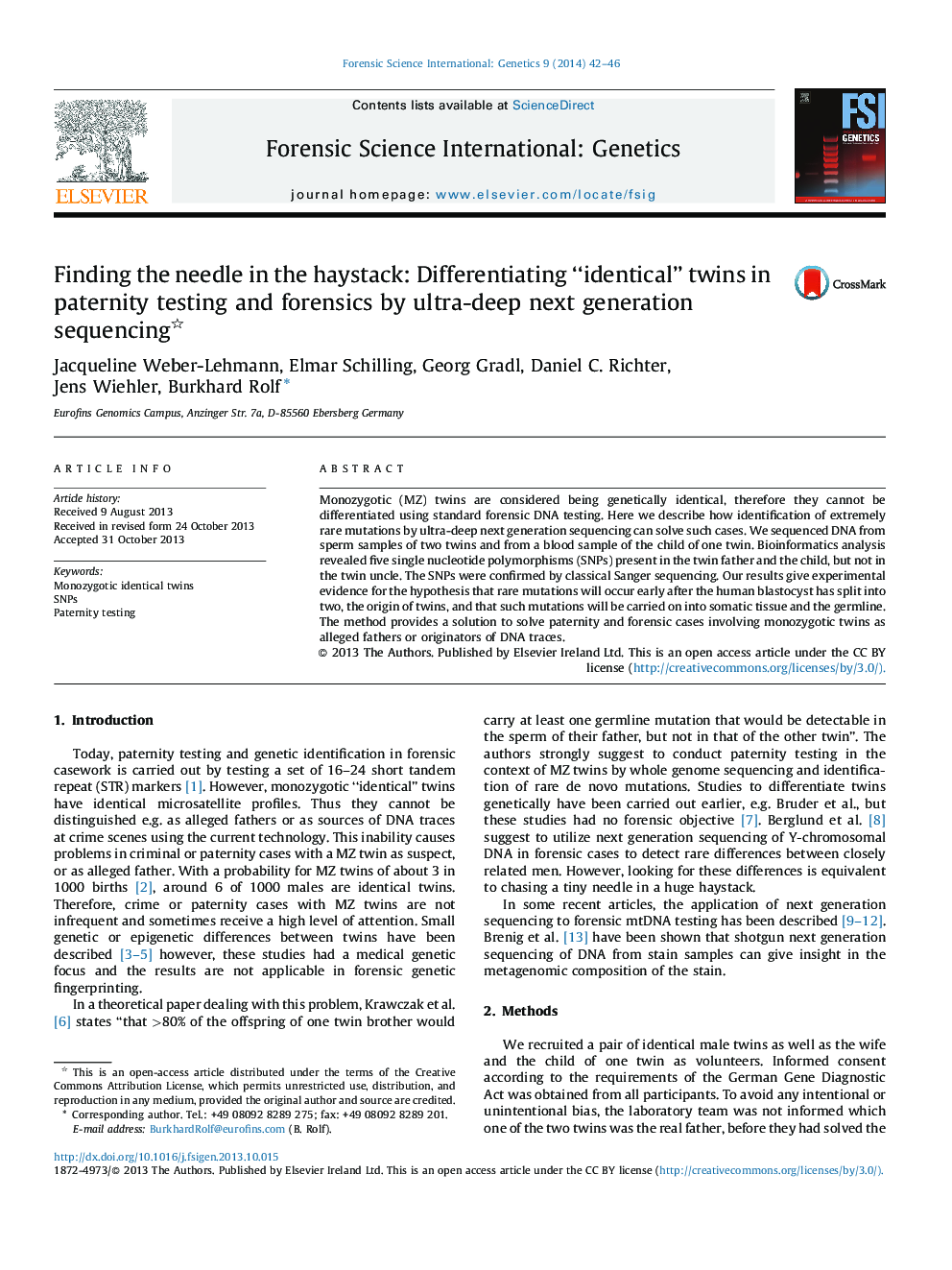| Article ID | Journal | Published Year | Pages | File Type |
|---|---|---|---|---|
| 6554159 | Forensic Science International: Genetics | 2014 | 5 Pages |
Abstract
Monozygotic (MZ) twins are considered being genetically identical, therefore they cannot be differentiated using standard forensic DNA testing. Here we describe how identification of extremely rare mutations by ultra-deep next generation sequencing can solve such cases. We sequenced DNA from sperm samples of two twins and from a blood sample of the child of one twin. Bioinformatics analysis revealed five single nucleotide polymorphisms (SNPs) present in the twin father and the child, but not in the twin uncle. The SNPs were confirmed by classical Sanger sequencing. Our results give experimental evidence for the hypothesis that rare mutations will occur early after the human blastocyst has split into two, the origin of twins, and that such mutations will be carried on into somatic tissue and the germline. The method provides a solution to solve paternity and forensic cases involving monozygotic twins as alleged fathers or originators of DNA traces.
Keywords
Related Topics
Life Sciences
Biochemistry, Genetics and Molecular Biology
Genetics
Authors
Jacqueline Weber-Lehmann, Elmar Schilling, Georg Gradl, Daniel C. Richter, Jens Wiehler, Burkhard Rolf,
